A career-boosting
data science bootcamp
Bratislava — 10-14 February 2025
PhD students who need to handle data, use statistics or build models in their research.
Analysts who want to swing away from Excel and start working with big data, applying machine learning and create eloquent visualisations.
Professionals wanting to learn more about machine learning and statistics.
Required knowledge
Basic quantitative skills
No programming skills needed
PYTHON
Widely considered as one of the best programming languages for beginners, Python is a general purpose language that is currently the best choice for data science and machine learning applications. During the first day, we will walk you through the basics of this language and how to use it to solve data science tasks.By attending Winter Data School, you will gain lifelong access to our data science community. We support our members online, and in person by organizing monthly events such as discussions, short lectures and workshops, and data challenge evenings. The participants of our previous event, Winter Data School, found work opportunities and research collaborations in this community. As community is one of our core values, we listen closely to your feedback and try to accommodate what the members want in our events. Join this wonderful community and gain access to a unique resource for learning data science!
Price - 1100 EUR
Price - 950 EUR
Price - 800 EUR
Scholarships available for students!
Thanks to our partners, we are able to provide 10 scholarships to students (undergraguate, masters and PhD). This scholarship covers 100% of the costs of Winter Data School. If you are a student and wish to apply for the scholarship, please fill out the sign-up form accordingly and write a short (500 words maximum) motivation statement - the scholarship will be awarded based on this statement.
Our scholarships are intended to support those who (or their research groups in the case of PhDs) cannot otherwise afford the entry to Winter Data School. It is worth noting that the acceptance rate to this scholarship was 30% on our previous event, Winter Data School 2023. If a participant applies and is not granted the scholarship, they will be offered to buy the entry, however this is subject to availability of places, which may be exhausted.
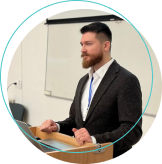
Imrich Berta
Applied mathematics graduate from University of Cambridge, experienced in machine learning models for disease prediction. Currently works as a consultant for government on cancer epidemiology and public health. Actively mentors analysts and organizes coding workshops for students.
LinkedIn →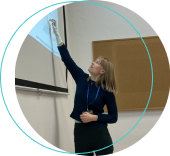
Laura Johanesová
Laura is a bioinformatician and biomedical scientist currently at the University of Vienna. The skills she has in R, Linux and Python are crucial for her research in regeneration and she also developed interest in biotechnology and medicine, which helped her team win the first place in a biotech incubator.
LinkedIn →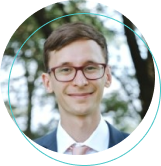
Ján Dudek
Magna cum laude economics and econometrics graduate from Rice and Oxford. Improved the risk-equalization model at the Ministry of Health and implemented ML fraud detection algorithms in Slovak healthcare. Currently a senior data scientist specializing in the health insurance industry.
LinkedIn →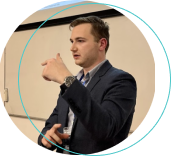
Jakub Hantabal
Jakub is a biomedical data scientist studying at Oxford and specializing in oncology collaborating with British and Slovak institutions. Jakub also consults clients in life science on business and technology development, and is passionate about education of future data scientists.
LinkedIn →




